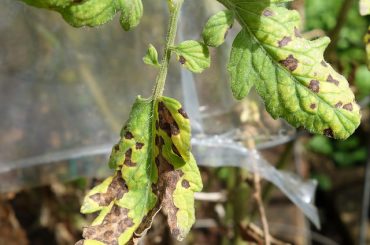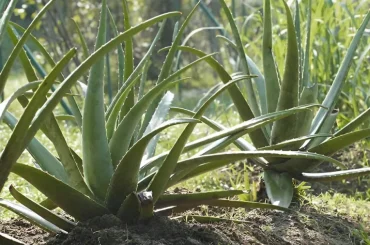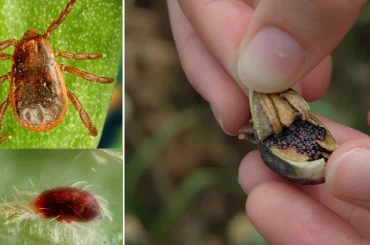Animals that eat sunflower
Sunflowers are more than only an attractive face in the greenhouse. Tall and pointing toward the sun, they provide an abundant food supply to many kinds of animals, including deer. Yet, do sunflowers become eaten by deer? The secret is in the way they go of grazing, which often leads them to take in these brilliant developments in quest of the vital minerals and vitamins they carry.
You may see deer leaving behind scat and trails in the calm of the evening or the stillness of the morning, maybe to your sunflower patch. These kind but ferocious herbivores don’t care what kind of plants you have; they’ll devour the fragile leaves and nutrient-dense seeds.
Do Rabbits Eat Sunflowers and How to Stop Them
 The cute, but occasionally annoying, rabbits like to consume more than just carrots. Do sunflowers feed rabbits? Yes, it is the unqualified answer. Your beloved sunflowers’ delicate petals, crisp seeds, and even robust stalks will all be readily nibbled on by these furry foragers. They get a feast set in your garden, if you will.
The cute, but occasionally annoying, rabbits like to consume more than just carrots. Do sunflowers feed rabbits? Yes, it is the unqualified answer. Your beloved sunflowers’ delicate petals, crisp seeds, and even robust stalks will all be readily nibbled on by these furry foragers. They get a feast set in your garden, if you will.
Why, though, focus just on sunflowers? As opportunistic feeders, rabbits relish a varied diet. Nothing appears to elude their voracious appetite, not even vibrant flowers. These squishy garden invaders find sunflowers to be absolutely tempting because of their vivid colours.
How therefore can you stop your bright flowers from turning into a rabbit’s feast?
How to stop rabbits from eating sunflowers?
So it becomes the next job for the gardeners. Relax, there are steps taken to safeguard your garden sanctuary. Building wire fences around the edge of your garden will deter rabbits from jumping in for a meal. But watch out, these agile creatures could try to tunnel beneath the barrier instead of climbing it.
It is therefore wise to make sure the fence sticks out at least six inches into the ground. It can also be beneficial to reduce places that are good for rabbit habitation. These furry invaders will find your garden less appealing if you clear garbage, rake leaves, and keep it neat. Scents that rabbits find objectionable might also be a natural discouragement. An invisible barrier made by garlic, sulphur, or even predator urine can keep rabbits away from your valuable flowers.
Though rabbits could be a nuisance to gardeners, with a little forethought and precautions, you can enjoy your sunflowers in peace and free from furry nibblers.
How to stop deer from eating sunflowers?
 You have to be deliberate in making sure that your poppies don’t become deer snacks. Constructing a robust fence or barricade around your garden can prevent these curious critters from devouring a sunflower banquet. Two other approaches to increase safety are installing motion detecting sprinklers and sound makers to scare them away.
You have to be deliberate in making sure that your poppies don’t become deer snacks. Constructing a robust fence or barricade around your garden can prevent these curious critters from devouring a sunflower banquet. Two other approaches to increase safety are installing motion detecting sprinklers and sound makers to scare them away.
Using noxious odors from nature is another deterrent. Deer won’t dare to nibble on your important flowers if you ring your garden with fragrant plants like violet, rosemary, oil from peppermint, or even garlic. To further dissuade deer from eating your sunflowers, try growing thorny plants or flowers nearby.
My sunflowers become most effectively deer-proofed when I utilize these methods. Your sunflowers will benefit wildlife and farmers alike if you study what they utilize and take essential activity.
Mice and voles – Do Mice and voles eat Sunflowers?
 To save your garden, you must move to drive them out of the vicinity. Investigating mouse and vole diets
To save your garden, you must move to drive them out of the vicinity. Investigating mouse and vole diets
Sunflower seeds are just one item on the well-known varied diet of mice. The range of plants and seeds that are available draws them in, especially sunflowers. Comparably, when they come upon sunflower seeds, voles likewise like to nibble on them. Sunflowers are therefore open to these little animal kingdom members.
Protecting your sunflowers
To defend your sunflowers from the cravings of mice and voles, it’s necessary to take preventive steps. Installing obstacles such as fences or mesh around your garden can keep these creatures from accessing your plants and seeds. Additionally, routinely examining your garden for evidence of mice and voles activity and swiftly taking measures to eradicate them might help maintain your sunflowers.
Squirrels – Do Squirrels eat Sunflower
The Culprits Behind the Feast
 Sunflowers are not an exception to the well-known acrobatics of squirrels in gardens. The seeds and the flowers themselves are favorites of these cunning critters. Squirrels devour the entire flower head, leaving a scene of floral devastation, when other animals might settle for a couple seeds. If you’ve observed shells scattered beneath your plants or missing sunflower heads, these nimble rodents are most likely to blame.
Sunflowers are not an exception to the well-known acrobatics of squirrels in gardens. The seeds and the flowers themselves are favorites of these cunning critters. Squirrels devour the entire flower head, leaving a scene of floral devastation, when other animals might settle for a couple seeds. If you’ve observed shells scattered beneath your plants or missing sunflower heads, these nimble rodents are most likely to blame.
Keeping Them at Bay
Squirrels love sunflowers, so you have to plan carefully. Planting prickly plants like roses or holly around the base of the sunflowers might discourage them, as can covering immature seedlings with mesh or wire netting. Cones surrounding blooms, misting plants with spicy sauce, or giving them alternative food sources are some methods to divert them. Think about planting sunflowers far from trees or fences and, for even more protection, consider erecting a greenhouse.
Birds – What Birds Eat Sunflowers
 Sunflowers appeal especially to our feathered friends because of their high fat and protein content, which are necessary for surviving the winter.
Sunflowers appeal especially to our feathered friends because of their high fat and protein content, which are necessary for surviving the winter.
Exploring Birds’ Appetite for Sunflowers
Almost every species of bird is a voracious consumer of sunflower seed. Wild birds eat sunflower seeds mostly for food, not enjoyment, hence their nutritional value is very important. These seeds offer a quick supply of energy that replaces what is used up foraging. Observing a variety of telltale indicators, such damaged blooms, missing seeds, or plucking of seedlings, can indicate bird activity.
Protecting Sunflowers from Avian Predators
Because birds can reach your sunflowers from above, protecting them from them presents special problems. Using row covers, erecting wire-fenced enclosures around susceptible plants, or burying just planted seeds with hay or mulch are all ways to save your priceless flowers. Pests can also be discouraged from feeding on your treasured flowers by using decoy and scare techniques like motion-activated or wind-driven devices.
Raccoons Eat Sunflower Plants When Needed

Raccoons, despite their reputation as scavengers, are discriminating feeders who typically go for the most readily available and high-energy food sources.
Signs of Raccoon Activity
One way to tell whether there are raccoons in your yard is to look for specific evidence such as strange paw prints, droppings, and markings. Raccoons are notorious for digging through garbage cans and stealing bird feeders, leaving a trail of ruin in their wake. The fact that their nocturnal nature causes them to be only momentarily visible at times makes regulating their presence in residential settings even more challenging.
Goats Devour Sunflower Plants
 Sunflower plants are exactly the same from goats, who have become famous for their ferocious mouths. Anything green, even the vivid develops and rich leaves of sunflowers, will be destroyed by these hungry animals. Goats, for all their finicky dietary habits, are lured to sunflowers because of their substantial amount of important seeds and nutrients for their growth and health.
Sunflower plants are exactly the same from goats, who have become famous for their ferocious mouths. Anything green, even the vivid develops and rich leaves of sunflowers, will be destroyed by these hungry animals. Goats, for all their finicky dietary habits, are lured to sunflowers because of their substantial amount of important seeds and nutrients for their growth and health.
Understanding Goats’ Behaviour
Curious by nature, goats are known to explore the environment in quest of scrumptious delights. They often come across sunflower patches by their great sense of smell and unending curiosity, where they are unable to resist sampling the delicate foliage and succulent plants. Your garden could suffer greatly from goat droppings and remnants from their sunflower eating.
Protecting Sunflowers from Goats
It requires a strategy to keep goats from devouring your prized sunflowers. Putting up fences with tough spikes and obstacles will keep goats away from your expensive plants. Use of repellents like peppermint or garlic can also keep goats out of your garden. Use of the right mulch and container placement can also stop goats from getting to your sunflowers.
FAQs
What predators do sunflowers have?
Sunflower, common – SARE
Natural Enemies: Many of the seeds, for example sunflower seeds, are preyed on by insects and birds as well as small mammals.
What is eating my sunflower?
An weevils are the most common insect pest in sunflowers.
What is the most common pest in sunflowers?
sunflower moth
Sunflower moth is the primary pest which affects sunflowers in general. Occasional pests include stem weevils, seed weevils, stalk girdlers, and thistle caterpillars that can be rather serious if they occur in large numbers.






2 Comments
Do you mind if I quote a few of your posts as long as I provide credit
and sources back to your webpage? My website is in the exact same area of interest as yours and
my users would genuinely benefit from some of the information you provide here.
Please let me know if this alright with you. Thanks a
lot!
You forgot one: RATS. Rats are not mice or voles, and they will completely remove the heads of sunflower before they’re even developed.